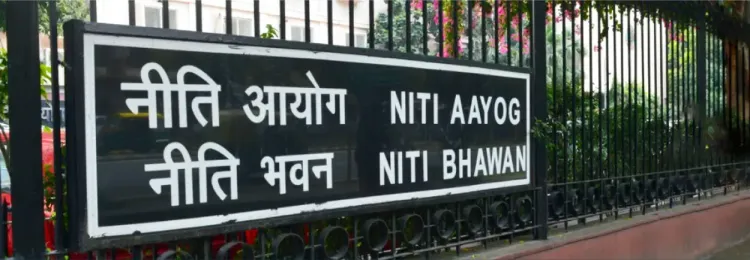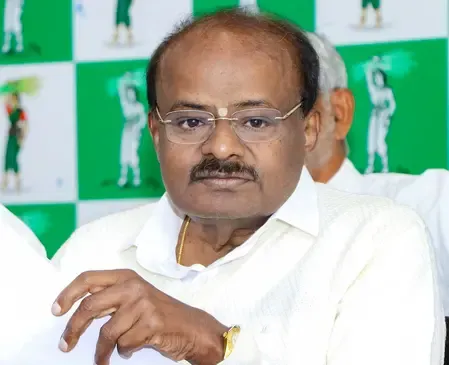How is NITI Aayog Planning India's Transition to a Circular Water Economy?

Synopsis
Key Takeaways
- NITI Aayog is developing plans for a circular water economy in India.
- Collaboration with private sectors and international partners is key.
- Emphasizing the reuse of wastewater is crucial for sustainability.
- State-level policies and standards for water reuse are essential.
- Innovative technologies can bolster treated water reuse.
New Delhi, Nov 8 (NationPress) NITI Aayog is developing a comprehensive plan that incorporates international and private-sector collaborative business frameworks, innovative financing, and technology alliances to expedite India’s shift towards a circular water economy through the reuse of wastewater.
In light of the emerging freshwater crisis, deliberations were conducted during a two-day National Workshop titled “Reuse of Treated Wastewater in India,” organized by NITI Aayog in association with the Government of Karnataka and the Bangalore Water Supply and Sewerage Board on November 6–7 in Bengaluru as part of its state support mission, as reported in an official statement.
NITI Aayog member Vinod Paul underscored the necessity of maximizing the potential of wastewater reuse to foster a mutually beneficial strategy for achieving Viksit Bharat 2047.
He pointed out the importance of establishing state-level policies for wastewater reuse and developing enforceable common standards for various applications, integrating water reuse for emerging needs such as data centers, addressing health considerations, and promoting behavior change.
Enhancing the reuse of treated wastewater presents a transformative opportunity to secure water availability, lessen reliance on freshwater, bolster climate resilience, and advance the principles of resource circularity, according to the statement.
Senior state officials showcased best practices from various states, including Gujarat’s scalable reuse models, Delhi’s revenue-generating initiatives, Indore’s multi-sectoral approach to promoting reuse, Karnataka’s integrated rural-industrial reuse systems, Tamil Nadu’s tertiary treated water for industrial purposes, and Maharashtra’s technology-driven greywater solutions, serving as potential models for other states.
Shalini Rajneesh, Chief Secretary of the Government of Karnataka, outlined groundbreaking initiatives undertaken by the state to address the crisis in 2024, such as utilizing water reuse for lake rejuvenation and catering to industrial demands. She encouraged participants to generate strategic ideas for both the nation and the state to enhance the reuse potential.
Attendees emphasized the urgency for robust state-level policies by 2030 and establishing clear common standards for diverse end-use applications. The significance of developing grid infrastructure, real-time quality monitoring systems, and capacity building within utilities for effective implementation was highlighted, particularly from a health perspective.
Additionally, the need for cost-effective technologies and sustainable operational frameworks for decentralized treatment systems was recognized as crucial for facilitating treated water reuse.
The workshop culminated in a field visit on November 7 to BWSSB’s K&C Valley Sewage Treatment Plant and Cubbon Park Treatment Plant, where participants from various states observed advanced technologies for treatment and reuse.
Senior officials from 18 states, along with policy experts, industry leaders, researchers, academia, representatives from UNICEF, the Government of Israel for South India, and the Singapore Water Association convened to discuss challenges, opportunities, and innovations in enhancing the utilization of treated water for agricultural, non-potable domestic, and industrial applications, resulting in actionable recommendations to bolster India’s circular water economy and achieve Sustainable Development Goals (SDGs).










